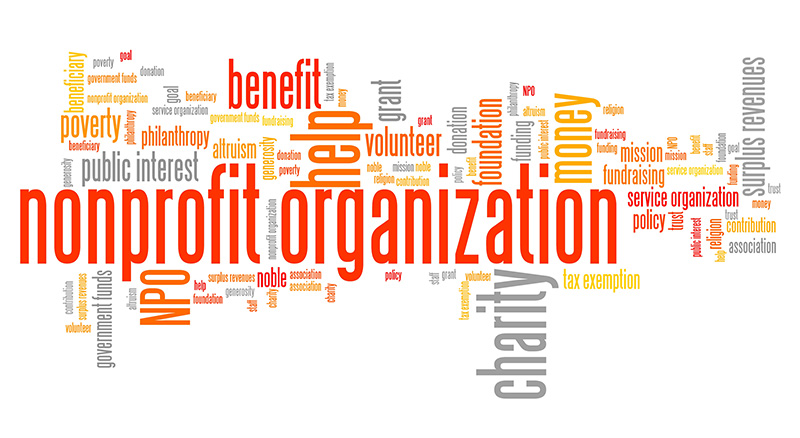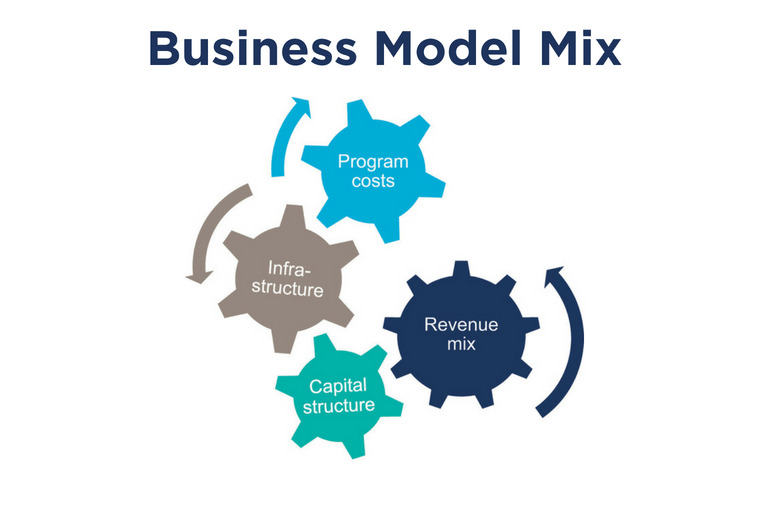Nonprofit Firm: Custom-made Solutions for Sustainable Advancement and Impact
Nonprofit Firm: Custom-made Solutions for Sustainable Advancement and Impact
Blog Article
Checking Out the Diverse Features and Obligations of a Nonprofit Company in Dealing With Social Issues and Promoting Adjustment
Nonprofit firms serve as essential representatives of change within society, dealing with a myriad of social issues with multifaceted methods. Their responsibilities expand past simple service stipulation; they involve in advocacy, resource mobilization, and neighborhood outreach, commonly acting as a bridge in between marginalized populaces and important solutions.
Recognizing Nonprofit Firm Roles
The efficiency of nonprofit agencies hinges on a clear understanding of their diverse functions within culture. Nonprofit companies often operate as service suppliers, delivering vital programs and sources to underserved populations.
Additionally, nonprofits play a vital role in advocacy, raising recognition and influencing plan decisions that affect their areas. By involving in research study and public education and learning, these organizations help shape public discourse and promote notified decision-making - nonprofit agency. They likewise function as platforms for volunteerism, setting in motion neighborhood members to contribute their time and skills toward collective goals
Additionally, not-for-profit agencies often act as conveners, bringing with each other varied stakeholders to cultivate partnership and cumulative impact. This collective strategy boosts their capacity to address complicated social concerns successfully. Recognizing these complex roles is essential for taking full advantage of the capacity of not-for-profit firms in creating sustainable social modification and improving total area well-being.
Area Engagement and Outreach
Efficient neighborhood involvement and outreach are basic components of not-for-profit firms' strategies to promote links and build depend on within the communities they serve. These initiatives concentrate on comprehending neighborhood requirements, promoting recognition of available sources, and encouraging engagement in programs designed to deal with social concerns. Nonprofit companies use a selection of approaches to engage with community participants, such as workshops, informative sessions, and collective events.
Outreach initiatives serve to strengthen partnerships with diverse populations, particularly marginalized groups that may deal with barriers to gain access to. By utilizing culturally pertinent interaction techniques and leveraging local partnerships, nonprofits can boost their exposure and show their dedication to area empowerment. This technique not only cultivates a feeling of belonging but also boosts the likelihood of sustained engagement.
In addition, reliable neighborhood interaction goes past mere participation; it includes actively listening to area members' responses and including their understandings into program growth. This collaborative process makes certain that the solutions provided are receptive, relevant, and customized to the unique obstacles faced by the community. Inevitably, fostering solid connections via engagement and outreach can cause more impactful treatments and a better cumulative effort toward advertising positive social change.
Campaigning For and Plan Impact
Campaigning for serves as an essential system for nonprofit agencies to affect public law and drive systemic modification. By leveraging their competence and neighborhood understandings, these organizations can properly stand for marginalized populaces and address pressing social problems. Nonprofits take part in advocacy via numerous techniques, including public recognition projects, grassroots mobilization, union building, and straight lobbying of policymakers.
With these efforts, not-for-profit companies intend to form regulation and see here now policy frameworks that align with their mission and the needs of the communities they offer. They carry out research, gather information, and share engaging stories to highlight the seriousness of particular concerns, ensuring that decision-makers are notified and encouraged to act. This process not just intensifies the voices of those influenced by social injustices yet likewise cultivates a more inclusive and equitable policymaking atmosphere.
Moreover, campaigning for initiatives typically look for to create long-term structural changes, addressing root creates instead of just reducing symptoms. By prioritizing plan impact, nonprofit agencies add to a broader understanding of social obstacles and advertise services that can cause sustainable improvements in social well-being. Ultimately, advocacy is basic to the transformative duty nonprofits play in creating a just and equitable society.
Fundraising and Resource Monitoring
Not-for-profit companies depend on durable fundraising and resource administration strategies to support their advocacy initiatives and maintain their missions. Reliable fundraising is important for ensuring the schedule of funds needed to carry out programs and activities that attend to pressing social concerns. This procedure often involves diversifying revenue streams with grants, individual donations, corporate sponsorships, and fundraising events. By using a multi-faceted approach, nonprofits can reduce the risks related to dependence on a single financing source.
Source monitoring is similarly critical, as it includes the strategic allotment of both financial and human sources to maximize influence. Nonprofits should establish budget plans that line up with their goals while making sure openness and liability to stakeholders. This involves regular monitoring of expenditures and changing strategies as needed to optimize source usage.

Collaboration and Partnerships
While many organizations pursue their objectives independently, cooperation and collaborations can significantly enhance the efficiency of not-for-profit companies. By collaborating with various other nonprofits, government entities, and economic sector companies, nonprofits can pool resources, share proficiency, and intensify their effect on social issues. Joint initiatives usually bring about innovative options that may not be achievable independently, leveraging the toughness of each companion to address complicated difficulties.

Inevitably, reliable collaboration needs clear interaction, shared objectives, and mutual respect among companions. By accepting a participating approach, nonprofit firms can produce lasting networks that not only address prompt social problems however additionally contribute to long-term systemic change, promoting a much more equitable culture. Through partnership, nonprofits can thrive and maximize their potential for meaningful impact.
Conclusion
Nonprofit agencies work as crucial entities in cultivating and attending to social problems view it modification within communities. Through diverse functions such as community campaigning for, interaction, and resource administration, these companies efficiently set in motion resources and assistance for underserved populaces. Their joint efforts with various stakeholders improve the capability to affect public law and promote structural modifications. Inevitably, the complex functions of nonprofit firms dramatically add to the pursuit of social justice and the enhancement of neighborhood wellness.
Understanding these diverse roles is essential for maximizing the possibility of not-for-profit firms in creating sustainable social adjustment and enhancing general area wellness.
Reliable neighborhood engagement and outreach are essential parts of nonprofit companies' methods to promote links and build trust within the communities they serve. By working together with other nonprofits, federal government entities, and personal sector organizations, nonprofits can merge sources, share know-how, and enhance their impact on social concerns.Not-for-profit agencies serve as important entities in addressing social concerns and cultivating adjustment within communities - nonprofit agency. Eventually, the diverse functions of not-for-profit companies dramatically contribute to the pursuit of social justice and the improvement of area well-being
Report this page